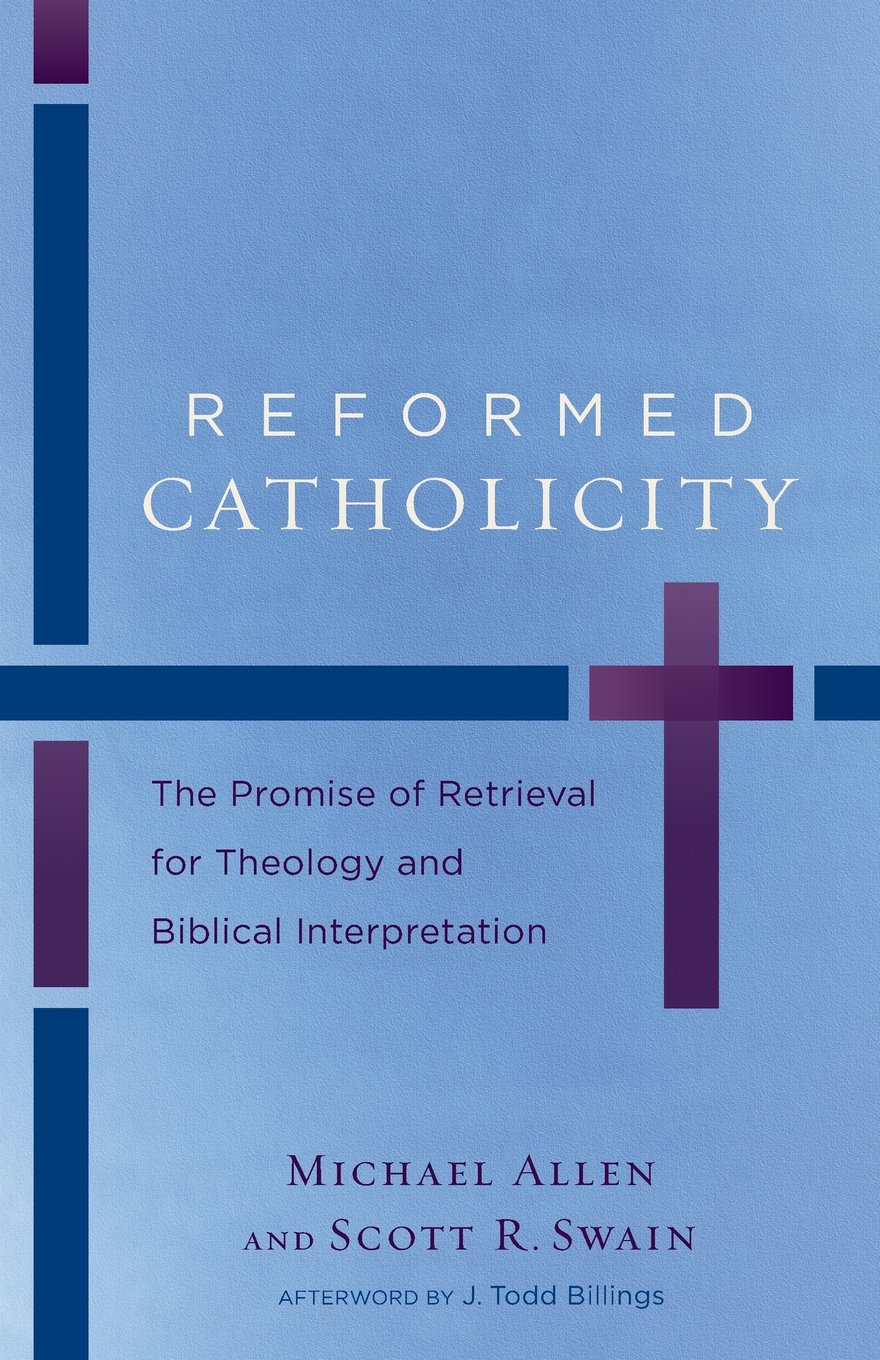A Brief Book Summary from Books At a Glance
Overview (from the Publisher)
Can Christians and churches be both catholic and Reformed? Can they commit not only to the ultimate authority of apostolic Scripture but also to receiving this Bible within the context of the apostolic church? This volume argues that to be Reformed means to go deeper into true catholicity rather than away from it. Michael Allen and Scott Swain offer a manifesto for a catholic and Reformed approach to dogmatics that seeks theological renewal through retrieval of the rich resources of the historic Christian tradition. The authors provide a survey of recent approaches toward theological retrieval and offer a renewed exploration of the doctrine of sola Scriptura. The book includes a substantive afterword by J. Todd Billings and will appeal to professors and students of theology or Christian doctrine.
Table of Contents
Introduction: Renewal through Retrieval
1. Learning Theology in the School of Christ: The Principles of Theology and the Promise of Retrieval
2. Retrieving Sola Scriptura, Part One: The Catholic Context of Sola Scriptura
3. Retrieving Sola Scriptura, Part Two: Biblical Traditioning
4. A Ruled Reading Reformed: The Role of the Church’s Confession in Biblical Interpretation
5. In Defense of Proof Texting
Afterword: Rediscovering the Catholic-Reformed Tradition for Today: A Biblical Christ-Centered Vision for Church Renewal, by J. Todd Billings
About the Authors
Michael Allen (PhD, Wheaton College) is associate professor of systematic and historical theology at Reformed Theological Seminary in Orlando, Florida. He is the author of several books, including Justification and the Gospel, Karl Barth’s Church Dogmatics: An Introduction and Reader, Reformed Theology, and The Christ’s Faith: A Dogmatic Account. He also serves as book review editor for the International Journal of Systematic Theology.
Scott R. Swain (PhD, Trinity Evangelical Divinity School) is associate professor of systematic theology and academic dean at Reformed Theological Seminary in Orlando, Florida. He is the author of several books, including The God of the Gospel: Robert Jenson’s Trinitarian Theology and Trinity, Revelation, and Reading: A Theological Introduction to the Bible and Its Interpretation.
Summary
Introduction: Renewal through Retrieval
Some strands of Reformed thought have posited a radical discontinuity between the New Testament era and the subsequent centuries of Patristic and Medieval Christianity. The authors of the present volume follow another path, one which sees the Reformed tradition as a renewal movement within the historic catholic church. They set their proposal in the context of several other contemporary trends toward theological renewal: the Roman Catholic Nouvelle Théologie; the theology of Karl Barth; the reception history approach to biblical interpretation; the theological projects of Donald Bloesch, Thomas Oden, and Robert Webber; the modern hymns movement; the ecumenical projects of Lutheran theologians Carl Braaten and Robert Jenson; the theological interpretation of Scripture movement; Radical Orthodoxy; the evangelical ressourcement of D. H. Williams and others; the emerging/emergent movements; and the work of contemporary Thomists such as Matthew Levering and Gilles Emery. In this context, Allen and Swain’s retrieval project aims to “pursue catholicity on Protestant principles” for the purposes of contemporary theological and spiritual renewal (13).
Chapter 1: Learning Theology in the School of Christ: The Principle of Theology and the Promise of Renewal
In this chapter, the authors seek to provide a theological accounting for their retrieval project. They ground such a project dogmatically in the Trinitarian missions of the Son and the Spirit and the effects of these missions in the ongoing life of the church. They argue that the church is the “school of Christ” and point to the fact that Christ himself promised to give the Spirit to the church in order to lead her into all truth (18). They seek to provide a uniquely Protestant warrant for appealing to tradition, grounding this appeal in the illuminating work of the Holy Spirit. They also spell out the place of the church as the creaturely locus for the Spirit’s ongoing work. In this view, tradition is not merely a human invention but is grounded in the work of God and the promises of the New Testament.
Chapter 2: Retrieving Sola Scriptura, Part One: The Catholic Context of Sola Scriptura
In the second chapter, Allen and Swain seek to correct some common misconceptions regarding the formal principle of the Reformation: sola Scriptura (Scripture alone). While this principle can be and has been distorted into a total rejection of tradition and ecclesial authority, it was not so from the beginning. The classic Reformation understanding of sola Scriptura still made space for tradition and church authority. The authors specifically point to Martin Bucer and some early Reformed confessions as evidence for this claim. . .
[To continue reading this summary, please see below....]The remainder of this article is premium content. Become a member to continue reading.
Already have an account? Sign In
